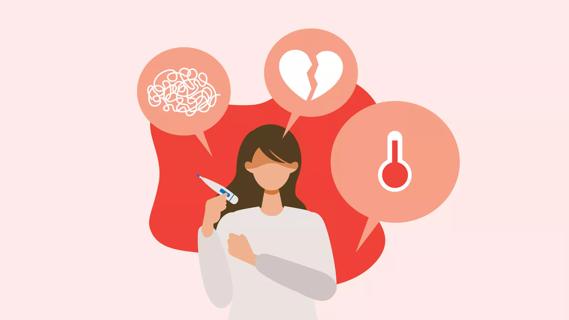Persistent marital stress takes a toll — both emotionally and physically

Sure, every married couple squabbles over finances or parenting or who did the dishes last.
Advertisement
Cleveland Clinic is a non-profit academic medical center. Advertising on our site helps support our mission. We do not endorse non-Cleveland Clinic products or services. Policy
But constant, unrelenting marital stress can take a toll on both parties’ emotional and physical health.
The quality of a marriage is important to a couple’s quality of overall health, says psychologist Ted Raddell, PhD.
You might notice common signs of stress – headaches, stomach issues, muscle tension – if your relationship has hit a rough patch. “But if that persists and you have unremitting stress, then it affects our immune functioning and we’re more vulnerable to all kinds of potential physical problems,” Dr. Raddell says.
One recent study linked marital conflict and depression to poor digestive health. Another study suggested that strained relationships may be connected to an increased risk for heart disease.
This mind-body connection is well known among physicians, Dr. Raddell says. Stress, in general, produces a “fight or flight” response that is designed to help in emergencies. But if it’s constantly activated, it can cause wear and tear on the body – both physical and emotional.
Stress without relief can disturb the body’s internal balance and may lead to headaches, stomach upset, high blood pressure and even chest pain, he says.
Stress is also linked to heart disease and cancer, among other health problems.
Advertisement
The impact on health is greatest, Dr. Raddell says, when relationship stress becomes chronic.
“The longer the time the distrust persists, over the course of months versus weeks, is probably where you’re more likely to see some of those physical symptoms,” he explains.
When a spouse can create an atmosphere of emotional safety for their partner, the nervous system shifts into “rest and digest” mode, and all body systems function optimally.
Dr. Raddell encourages couples to seek help sooner rather than later if they’re struggling and in distress.
Advertisement

Sign up for our Health Essentials emails for expert guidance on nutrition, fitness, sleep, skin care and more.
Learn more about our editorial process.
Advertisement

Even small moments of time outdoors can help reduce stress, boost mood and restore a sense of calm

Fill your coping toolbelt with healthy skills like getting outside, writing in a journal, volunteering, laughing or talking with a friend

We all experience some stress from time to time, but chronic stress can contribute to health issues like diabetes and cardiovascular disease

Getting outside, eating a healthy diet, taking up journaling, listening to music — even cuddling a pet — can provide stress relief

Give these 30+ grocery items a try to help find relief

In response to stress or danger, your brain responds by either defending itself, running away, stopping or reconciling

From nausea, weight gain and eczema, stress can affect your immune system in many ways

Stress hormones trigger cravings in an attempt to keep us safe from danger

Even small moments of time outdoors can help reduce stress, boost mood and restore a sense of calm

A correct prescription helps your eyes see clearly — but as natural changes occur, you may need stronger or different eyeglasses

Both are medical emergencies, but they are very distinct events with different causes